Tag: AUCD
-
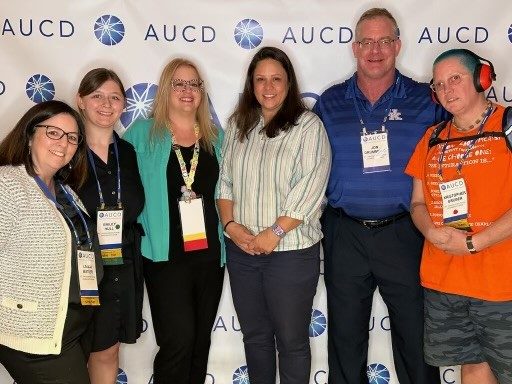
HDI Staff and Students Attend AUCD Annual Conference
University of Kentucky Human Development Institute (HDI) staff and students attend the 2023 Association of University Centers on Disabilities (AUCD) conference. The theme of this year’s conference was Emerging Leaders: […]
-
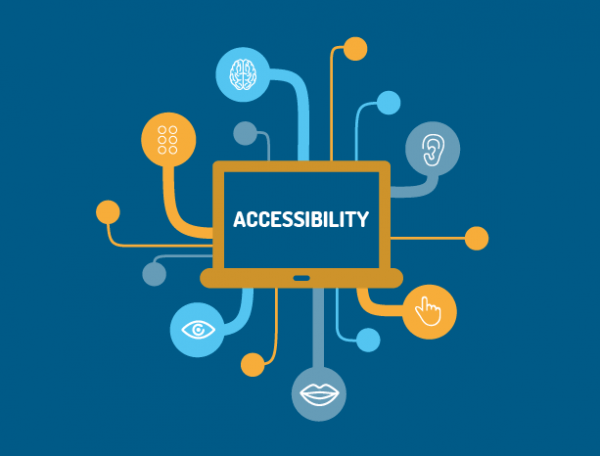
Increase Accessibility with Plain Language
Opportunities to make life more inclusive are everywhere – even something as simple as the language we use can have huge implications for accessibility. One of the most powerful tools […]
-
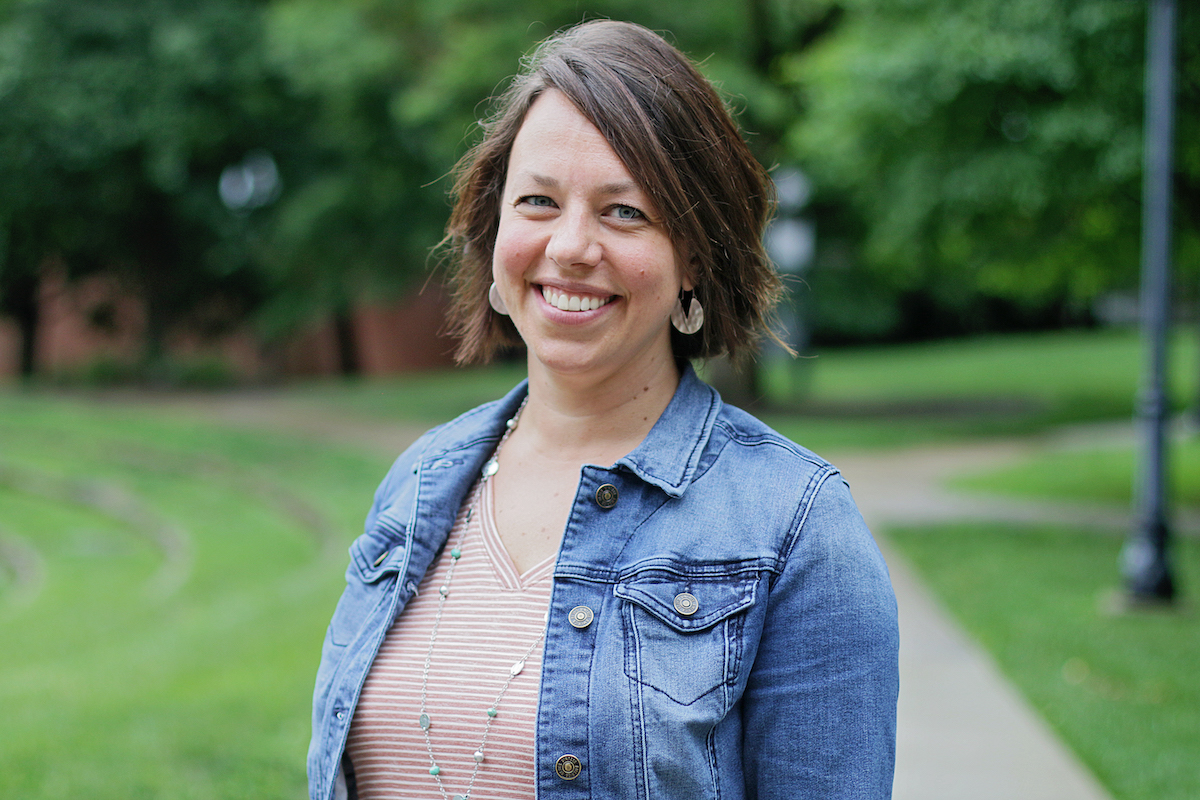
Promoting COVID-19 Vaccine Access and Confidence
Over the next year, the UK Human Development Institute will work with the Association of University Centers on Disabilities (AUCD) and several partners as part of a CDC Cooperative Agreement, […]
-

HDI Staff to present at AUCD Annual Conference
Staff representing the University of Kentucky Human Development Institute (HDI) will present at the 2020 Association of University Centers on Disabilities (AUCD) conference December 7-9. The theme of this year’s […]
-
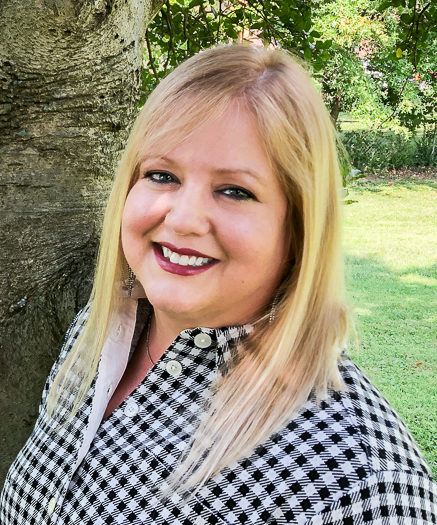
Dahl to Co-Chair AUCD Special Interest Group
Kristen Dahl, LPCC, CHES, has been selected to co-Chair the Mental Health Aspects of I/DD Special Interest Group of the Association of University Centers on Disabilities (AUCD). This group provides […]
-

Hausman and Howard to lead Kentucky’s Act Early Network
The University of Kentucky Human Development Institute (HDI) has received a 2020 Act Early State and Territorial Team COVID-19 Response Initiative grant funded through an existing cooperative agreement between the Association […]
-

Mary Howard selected a Children’s Mental Health Champion
The Association of University Centers on Disabilities (AUCD) with support from the Centers for Disease Control (CDC) has selected Mary Howard, HDI Research and Development Associate for Early Care and […]
-
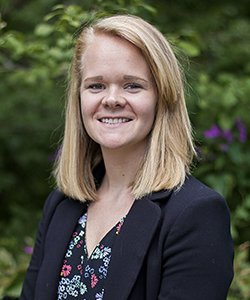
Danielle Augustin selected as AUCD Emerging Leader
The UK Human Development Institute is pleased to announce the selection of Danielle Augustin as an Association of University Centers on Disabilities (AUCD) Emerging Leader. Emerging Leaders can make a […]
-
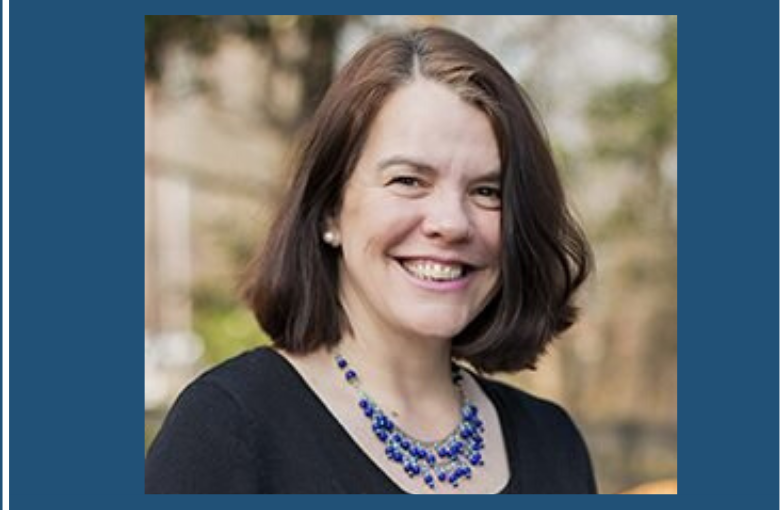
HDI partnership receives AUCD grant to support Kentucky families
The Association of University Centers on Disabilities (AUCD) has awarded the UK Human Development Institute (HDI) the Innovative Community of Practice (CoP) on Parenting, Behavioral Concerns & Strategy grant. HDI […]
-
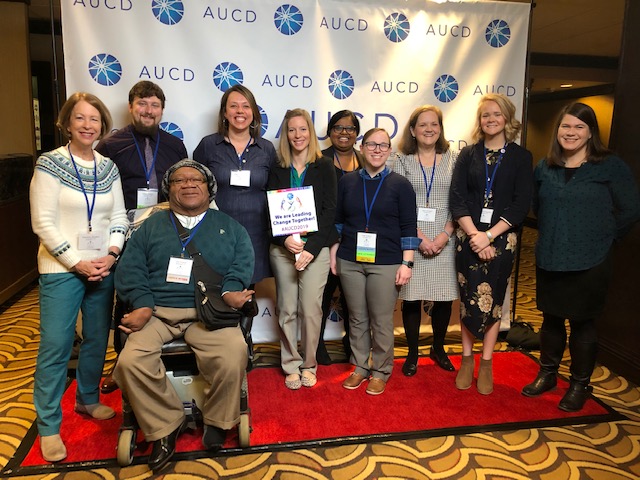
HDI participates in the 2019 AUCD Conference
The UK Human Development Institute is well represented at the Association of University Centers on Disabilities (AUCD) Conference 2019, “Leading Change Together”. This year’s theme reflects the work being done […]